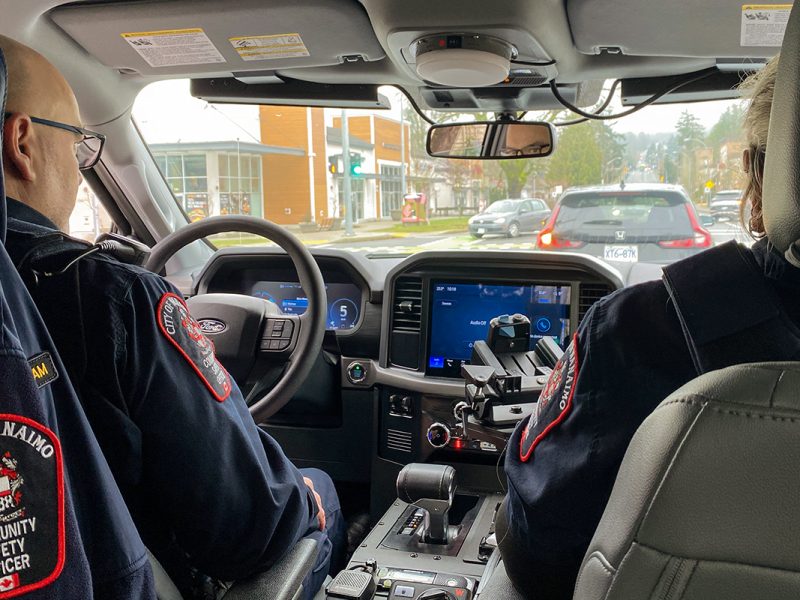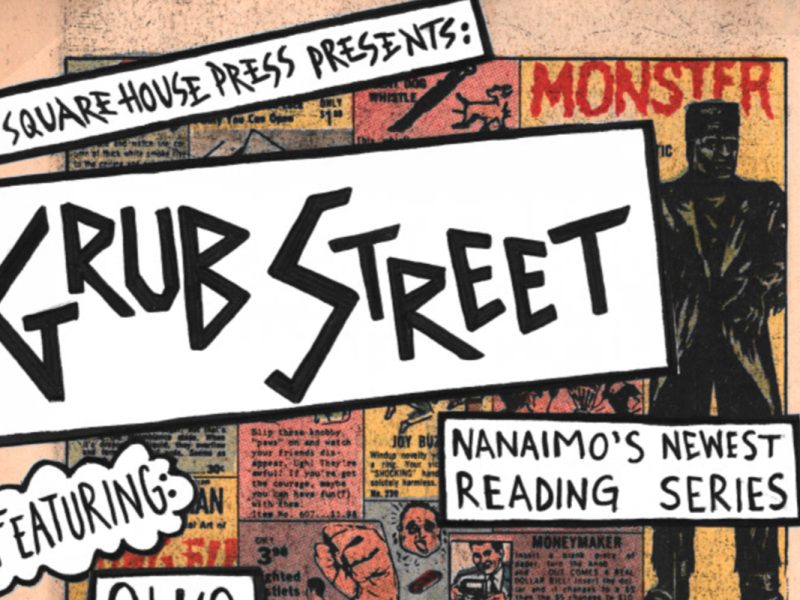
“Tonight we celebrate the brilliance of our ancestors and the knowledge of their teachings,” Snuneymuxw First Nation Chief Mike Wyse (Xumtilum) told guests at a June 21 dinner celebrating two years of progress since Snuneymuxw First Nation (SFN) and BC Housing signed a memorandum of understanding (MOU) focused on developing housing through SFN teachings and community knowledge.
“Our longhouses were a place where we gather our teachings, our language, our songs,” Wyse told the guests gathered at the Coast Bastion Hotel. A replica longhouse watched over the celebration, one of the various ways that SFN’s history of treaty relations and reclaiming sovereignty was honoured.
A shift in SFN’s demographic on and off reserve has shaped what housing options the nation has looked into, said Wyse.
“In the last 50 years, within even my lifetime, families have shrunk,” he said. “So, the need for bigger homes is not as greatly needed.” The focus has moved away from larger multi-story houses to more rancher style and multi-family dwellings, he added.
SFN is one of the largest nations in the province with roughly 2,000 members yet has the smallest per capita land base in all of B.C.
Wyse noted that the current aim to have 300 units move-in ready by 2028 is a short-term goal in what is expected to be a longer partnership to “strengthen housing outcomes for all who live in this sacred territory.”
Indigenous populations are growing faster than non-Indigenous populations, according to the most recent census. SFN’s youth are kept in mind during planning stages, Premier David Eby said during his speech at the event.
“They’re looking for community spaces as well, places to connect,” he said, pointing to soccer pitches and basketball courts. “That’s a factor when planning developments and considering what services should be nearby.”
Eby was gifted a metal etching of a longhouse as thanks for honouring the MOU and working in partnership with SFN to continue developing housing throughout the region.
In return, he gifted Wyse with a hand-carved burl bowl, saying, “I hope tonight we can fill it with good energy to keep walking this path together.”
In 2021, SFN signed an MOU with BC Housing to work on developing culturally appropriate housing, which is a departure from the way things were previously done, said Eby.
Typically, nations work with the federal government to build housing on reserve land. Alternately, this agreement represents a move towards making decisions more as nation-to-nation partnerships with the province and allows for development on and off reserve.
Wyse advised other nations interested in exploring similar agreements to “keep persistent” and keep sharing the need for First Nations-led housing. “We’re very happy that Snuneymyxw is where we’re at today, and we’re being heard,” he added.
Read more Snuneymuxw First Nation signs historic MOU with province and feds
Eby said the government has used teachings from SFN and strategies learned from the partnership to develop a framework for future housing agreements with other nations across the province.
“Each nation has its own approaches and its own priorities,” Eby stressed. “But this model of the MOU and shared agreement to work together on the principle, and then developing plans from there, is one that has worked well in other places across the province.”
Wyse explained that bringing nation members back home to Snuneymuxw has been a key focus for current and former SFN governments.
“We have members that live in the [United] States,” Wyse said during a question period after the celebration. “A big number of our membership live down in the Seattle area, Vancouver, Victoria. We’re going to give them the opportunity to come home now.”
That echoes similar statements made during a May 18 celebration of the return of 41 hectares of land to SFN through a partnership with Vancouver-based developer Seacliff Properties. The unprecedented land transfer from a private landowner added to the existing 266 hectares of SFN’s reserve land.
Read more Snuneymuxw reclaims kwula’xw in Land Back deal that will bring members home
The partnership and housing goals are separate from BC’s overall housing strategies, but Eby said the plans have the same need in mind.
“We all want to see more affordable housing for people in BC to call home. The knowledge, strategies and plans we share are all focused on that goal,” he said.
Current projects involved in the Snuneymuxw BC Housing partnership include:
- The 355 Nicol St project, 35 units of supportive housing operated by SFN will provide housing for Snuneymuxw and Indigenous community members experiencing or at risk of homelessness. More than one-third of people experiencing homelessness in Nanaimo identify as Indigenous, though they represent just eight per cent of the overall population. The project is currently pending rezoning.
- The Te͛tuxtwun project (pronounced Tey-tux-tun) located at Fifth Street and Howard Avenue in Harewood. The redevelopment involves “knowledge partners” SFN, the City of Nanaimo, School District 68 and BC Housing and will include more than 300 subsidized, affordable rental and market housing units, community gathering spaces and an alternative learning school.
- A fourplex development at 611 Kennedy St. will provide three-bedroom units for Snuneymuxw working professionals. SFN will manage the building, with operational support from M͛akola Housing Society and a planned move-in date of August 2023.
- La’lum’utul (care for one another) will provide eight homes for Indigenous families on reserve with construction planned to start July 2023.



